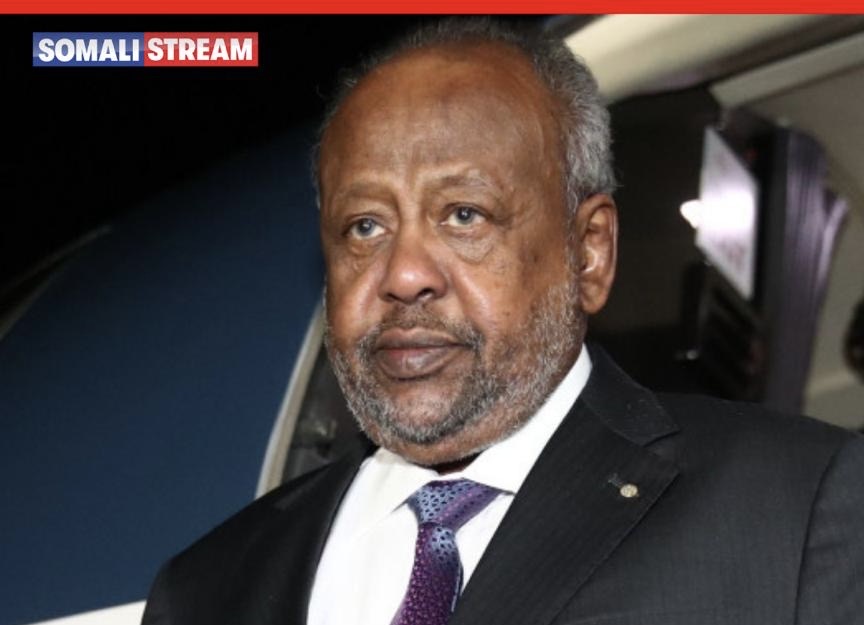Political temperatures are rising in Djibouti as the country’s ruling party, the Rassemblement Populaire pour le Progrès (RPP), prepares for a decisive extraordinary congress on November 8, while the National Assembly sets the stage for a constitutional review that could reshape the country’s political future ahead of the 2026 presidential elections.
The developments signal the beginning of what many observers are calling a defining season for President Ismael Omer Guelleh, who has led both the RPP and the nation since 1999. The dual moves – a parliamentary session to amend the Constitution and a party congress to consolidate leadership, have ignited speculation about Djibouti’s political trajectory as the April 2026 polls draw closer.
On Wednesday, National Assembly Speaker Dileita Mohamed Dileita reopened the country’s second ordinary parliamentary session of the year, setting in motion a series of high-stakes legislative debates.
In his opening remarks, Dileita announced that a special session will be held on October 26 to deliberate and vote on proposed constitutional revisions. He described the move as “a contemporary moment of great importance in the political and institutional history of our Republic,” urging lawmakers and government officials to “demonstrate exemplary engagement.”
The Speaker also underlined the need for strict adherence to quorum and majority rules, framing the exercise as a test of Djibouti’s institutional maturity.
The proposed constitutional review, which is rumoured to be removal of term limits, comes at a politically charged time, with both supporters and critics of the government reading it as a signal of potential adjustments to the balance of power, or even to presidential term structures.
Just days after the parliamentary session, the ruling RPP will gather for its extraordinary congress at the Palais du Peuple on November 8, a meeting widely regarded as critical in shaping the political landscape ahead of 2026.
Originally scheduled for October 25 but postponed due to “political calendar adjustments,” the congress is expected to bring together top party figures, including Prime Minister Abdoulkader Kamil Mohamed, who also serves as the party’s vice-president, and Finance Minister Ilyas Moussa Dawaleh, the RPP’s Secretary-General.
President Guelleh’s presence at the congress will underscore his continued centrality to Djibouti’s political order. Since assuming power in 1999, he has been both the face and the anchor of the RPP, steering the small but strategically vital Horn of Africa nation through decades of regional volatility while maintaining tight control over domestic politics.
For party loyalists, the congress represents a moment of renewal and unity. For critics and opposition voices, it is a sign that the ruling elite is preparing to tighten its grip ahead of another election cycle.
Founded in 1979 in Dikhil, the RPP is the oldest and most dominant political force in Djibouti. It leads the Union for the Presidential Majority (UMP), a coalition of several allied parties, including the FRUD, PND, UPR, and PSD.
The party’s longevity and Guelleh’s leadership have ensured a level of political stability rare in the Horn of Africa, but at the cost of limited political pluralism. International observers often describe Djibouti’s political system as a “managed democracy,” balancing controlled internal politics with strong external alliances — particularly with France, the United States, China, and Turkey, all of which maintain military or strategic interests in the country.
As Djibouti edges closer to its April 2026 presidential elections, the upcoming weeks could determine how the political contest is shaped. The constitutional review may clarify who can run, and under what rules, while the RPP congress will likely set the tone for how the ruling party mobilizes its base and presents its candidate.
With a population of just over one million but commanding one of the most strategic ports in Africa, Djibouti’s political decisions reverberate far beyond its borders. For now, the political class is holding its breath as both the parliament and the ruling party prepare for what could be the most consequential month in Djibouti’s recent political history.
If the constitutional revision passes and the RPP’s extraordinary congress reaffirms Guelleh’s leadership, Djibouti may be heading toward another election shaped by continuity rather than change. Yet, for a region often shaken by instability, continuity itself remains a currency of political survival.


